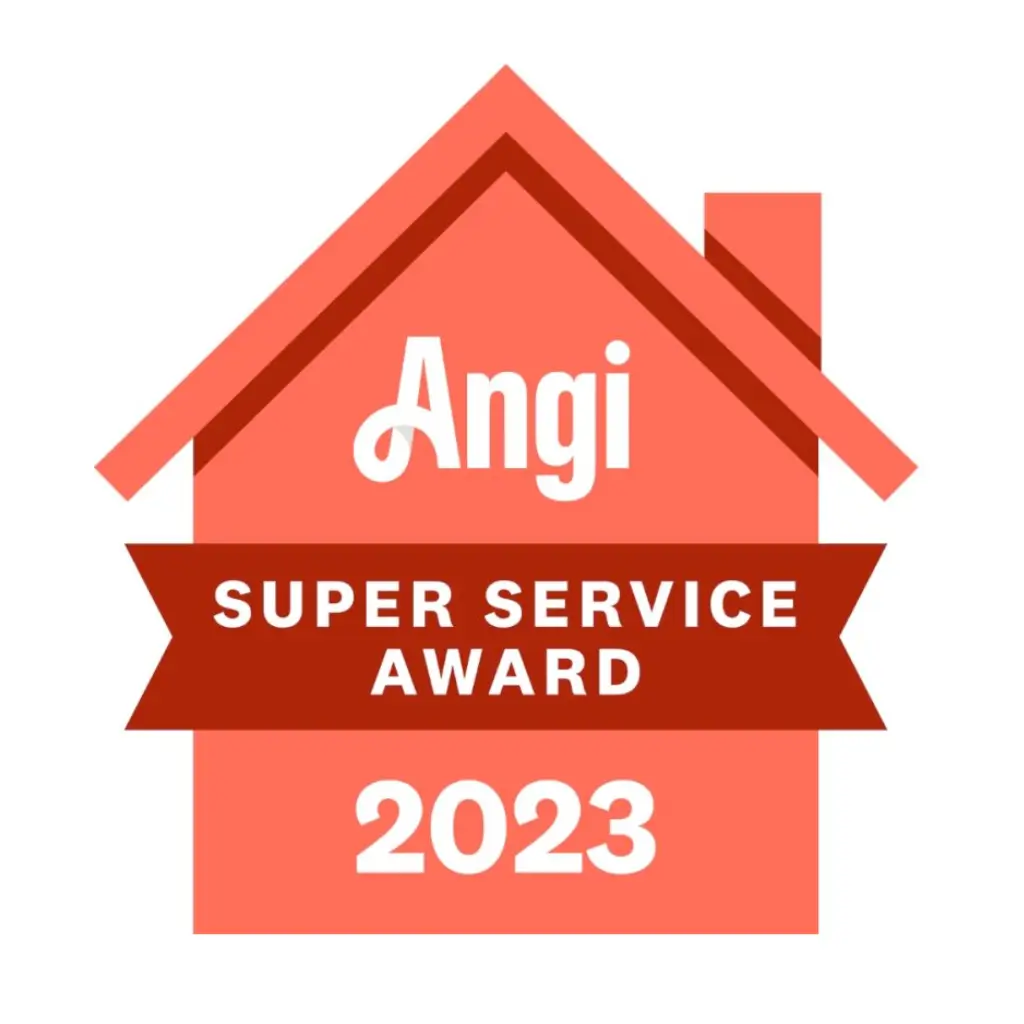Heat pumps are vital to keeping your home warm, especially in the winter, but like anything else in your home, it might need a repair from time to time. This comprehensive guide aims to demystify the process of troubleshooting and repairing your heat pump system. By understanding how a heat pump system works and knowing how to identify common errors, you can potentially save money on costly repairs or replacements. This article will not only cover the basic working principles of heat pump systems but also identify common problems, their possible solutions, and warning signs that require immediate attention.
Understanding Heat Pump Systems
Heat pumps are an essential part of HVAC systems, with the main role of providing comfortable and balanced air temperatures inside. Notably, they serve a dual purpose, providing both heating and cooling solutions.
Overview of a Heat Pump System
The primary function of a heat pump is to move heat from one place to another. During cold weather, a heat pump extracts heat from the outdoor air and transfers it to the indoor air system to maintain indoor air quality. During hot weather conditions, the heat pump does the opposite, eliminating excess heat from indoor spaces, essentially making it an air conditioner.
Common Heat Pump System Problems
Like any other machine, a heat pump system is prone to operational issues, requiring prompt heat pump repair. Among the problems you could encounter include:
- Heat Pump Not Turning On: If your system won’t turn on, it might be due to a tripped circuit breaker, disconnected wiring, or a faulty safety switch.
- Improper Temperature Regulation: Sometimes, these products aren’t able to maintain adequate heat levels due to a clogged air filter, faulty thermostat, or an issue with the circuit board.
- Heat Pump Making Odd Noises: Noises are common heat pump problems that generally occur due to loose parts inside the air handeler cabinet.
- It Doesn’t Stop Running: Heat pumps are designed to turn off at some point, and continuous running is common and can be caused by it leaking refrigerant, a faulty thermostat, or a stuc reversing valve.
- Freezing Up: Heat pump cold weather problems are common, especially when it freezes up. It can receive the proper power to run, but it cannot defrost enough to warm your home.
Repairing Common Heat Pump System Problems
The average heat pump repair cost can vary widely depending on the extent of the issues, with additional costs for parts if they need replacement. However, proper and regular heat pump maintenance by HVAC technicians can save you significant repair costs in the long run. Moreover, look out for HVAC contractors who offer a free estimate for their services, ensuring you have a clear outline of what the heat pump repair may cost you.
When facing heat pump problems, refer to your owner’s manual for troubleshooting tips. However, due to the complexity involved, most issues require professional HVAC contractors to diagnose and fix. So, if you’re unsure, always seek help from your local heat pump service to keep your system functioning optimally, maintaining your indoor air quality at its best.
Warning Signs That Your Heat Pump System Needs Repair
Your heat pump is an essential part of your HVAC system. It functions to either heat up or cool down your home. That’s why it can be such a hassle when it stops working properly. Here are some common warning signs that your heat pump is in need of repair:
Unusual Energy Bills
One major sign that your heat pump requires repair is if you notice a sudden increase in your energy bills. While it’s normal for your bills to fluctuate based on heating and cooling needs, a sudden spike could mean your heat pump doesn’t function efficiently due to problems like a clogged filter, loose parts, or issues with the circuit board.
Incompatibility with Home Comfort Levels
Another sign that you might need heat pump system repair is if your heating or cooling doesn’t match your home’s comfort levels. The heat pump’s cold weather problems can lead to uneven heat distribution. You might also notice cold air blowing out of the air handler, which is a clear indication of a problem.
Repeated Cycling Even When the Desired Temperature is Reached
If your heat pump repeatedly cycles, even after your home has reached the desired temperature, it could indicate a circuit breaker issue or perhaps a faulty safety switch. This common heat pump problem can also be an early sign that you’re not receiving power to the heat pump.
Inefficient Heating or Cooling
Inefficient heating or cooling is often a sign of a malfunctioning heat pump. If the air handler in the indoor coil of the heat pump is not producing a balanced air temperature or if your outdoor unit works inconsistently, it suggests the need for heat pump repair.
When to Contact a Professional
DIY home repair tactics may not always work when it comes to fixing a heat pump system. While you’re welcome to try contacting a heat pump repair technician is your best bet for fast and reliable service. Recognizing when you need a professional heat pump repair technician is crucial to maintaining your indoor air quality and ensuring your system lasts in the long run.
Understanding the Limitations of DIY Heat Pump System Troubleshooting
Consulting your heat pump’s owner’s manual and addressing simpler issues, such as cleaning or replacing the heat pump filter, can be part of DIY maintenance. However, more complex issues involving the reversing valve, heating elements, or the air conditioning circuit board should be left to a professional HVAC tech.
The Importance of Regular Maintenance
Regular heat pump maintenance can prevent the need for costly repairs in the future. Routine checkups by a professional technician can spot potential problems before they become major issues. Your heat pump service should also include an annual inspection of the air handler cabinet for optimal performance.
Always ask for a free estimate of the average heat pump repair cost before committing to a repair service. Remember, investing in the health of your HVAC system is an energy saver in the long run.
Prevention Tips to Keep Heat Pump System Running Smoothly
As winter months approach, the worry of heat pump cold weather problems, especially the heat pump not receiving power, starts taking precedence in homeowners’ minds. And when the heat pump doesn’t work, that peace of mind can quickly turn to frustration. However, just as is the case with any piece of machinery, proper maintenance can prevent many of these issues. From keeping an eye on the heat pump filter to ensuring even and balanced air distribution by monitoring the indoor coil and outdoor coil, these preventive measures can go a long way in avoiding the need for a heat pump repair technician.
Regular Cleaning and Maintenance
Maintenance activities should begin with the owner’s manual, which offers guidelines on how to ensure the optimal performance of your heat pump system. One of the commonly overlooked aspects of heat pump maintenance is the cleaning of the filters. A clogged filter can cause a multitude of problems, leading to a cascade of failures and additional repairs, thereby increasing the average heat pump repair cost.
Secondly, check for loose parts within the handler cabinet or any signs of damage on the circuit board. Regular inspection can help detect and mitigate any potential problems before they escalate. Remember: in the long run, this could save you expensive repair costs. For professional assistance, you can always contact HVAC contractors, who can provide a free estimate and offer a complete heat pump service.
The Role of Thermostat Settings in Heat Pump System Performance
When your heat pump doesn’t turn on, sometimes the solution is as simple as checking thermostat settings. Incorrect settings can cause the heat pump to operate inefficiently, resulting in uneven heat distribution in your home. Make a habit of understanding the heat pump system operations and how to adjust thermostat settings to suit your preferences. In addition, ensure your thermostat is in good working condition and replace any faulty parts before they hinder your heat pump system’s performance.
Proper Insulation and Sealing
Another crucial factor that homeowners often overlook is insulation. The quality of indoor air can significantly affect the performance of your heat pump system. For instance, if your window or door frames are not well sealed, this could lead to cold air leaking into your home, causing your heat pump system to work harder than necessary to maintain an optimal temperature. Regular checks for any needed home repairs can prevent this and prolong the life of your heating elements.
A well-insulated home, on the other hand, can trap warm air, lessening the burden on your heat pump system. Apart from window and door frames, check the attic, basement, and any other areas prone to leaks. Additionally, make sure to maintain a clean air filter to ensure your indoor air quality is at its prime. Poor indoor air quality due to a dirty air filter may impact your heat pump’s efficiency and, in turn, increase your air conditioning repair costs.
Why Choose Logan Services A/C, Heat & Plumbing for Your Heat Pump System Repair
Since 1969, Logan Services A/C, Heat & Plumbing has provided quality heating and cooling maintenance, installation, and repairs for residents in Ohio. And when it comes to repairing misbehaving heat pump systems, our experienced technicians at Logan leverage decades of hands-on experience, and additional training on the specific products we work with. Our experienced technicians specialize in getting heat pumps operational again, whether your system needs:
- Troubleshooting: Logan technicians are skilled in identifying and resolving issues causing heat pump malfunctions.
- Repairs: Technicians troubleshoot and resolve underlying problems with heat pump components.
- Replacements: Logan maintains full inventory to replace damaged heat pump parts or units when necessary.
Throughout all services, customer satisfaction and your comfort remain the top priorities. Each team member treats clients like family and personally takes your home’s climate seriously. We’ll educate you on properly maintaining your specific heat pump system as part of comprehensive solutions so your heat pump can last as long as possible.
For any HVAC service needed, contact the pros at Logan Services A/C, Heat & Plumbing for quality service.
Frequently Asked Questions
Is it worth it to repair a heat pump?
Deciding whether it’s worth repairing a heat pump largely depends on the age of the unit and the cost of the repair. If the heat pump is relatively new and the repair cost is a fraction of the price of a new unit, repairing it is often the most cost-effective choice. However, for older units nearing the end of their expected lifespan or if the repair costs are substantial, investing in a new, more efficient model might be a wiser decision.
What is the major problem with heat pumps?
The major problem of heat pumps is their reduced efficiency in extremely cold environments. As the outside temperature drops, heat pumps require more energy to extract heat from the outdoor air, leading to higher operational costs and sometimes inadequate heating performance. This limitation can be particularly challenging in regions that experience severe winter temperatures, making heat pumps less effective or requiring supplementary heating systems.
What is the life expectancy of a heat pump system?
The typical life expectancy of a heat pump system ranges from 10 to 15 years, depending on several factors, such as the quality of the installation, the brand and model, and how well the system is maintained. Regular maintenance can significantly extend the lifespan.



















